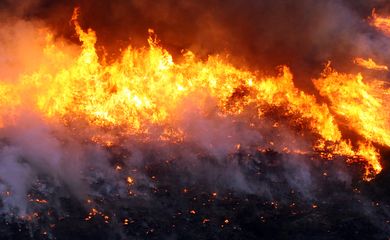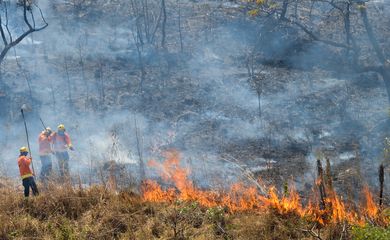Human Rights Watch: Criminal rings involved in Amazon deforestation

A report published Tuesday (Sep 17) by NGO Human Rights Watch (HRW) says that groups deforesting the Amazon have made threats and committed murder to invade the land owned by traditional communities. HRW researcher César Muñoz said organizations are active in several different illegal activities, adding that their connections form networks.

“These criminal networks work with several actors with a number of illegal purposes, so you have a group for wood extraction, another for land grabbing, and another for illegally providing papers for the wood,” Muñoz.
The work was done with data collected over the course of two years of research, during which three states were visited and 170 interviews conducted with residents and public officials. “We’ve been to several Amazon states and we documented patterns in rights violations in at least 12 communities,” Muñoz pointed out.
No investigation
One of the main drivers said to help criminals in the region is the lack of reports on killings and threats. Of the more than 300 murders linked to conflicts stemming from land ownership in the region since 2009, only 14 were brought to trial, according to the Pastoral Land Commission (CPT). To put the document together, HRW carried out an in-depth study into 28 cases that took place after 2015.
No government-provided data exist on violence linked to land conflicts in the region, Muñoz said. “Cases of violence and threats can be seen in several areas in the Amazon. This is one of the problems: no federal or state authority compile the cases,” the researcher argued.
The lack of accountability for the crimes is believed to stem from the way probes are conducted. Muñoz pointed out that police commissioners admitted that the bodies of murdered victims were often not even autopsied. “They acknowledge the problems and argue that crimes take place in places too far away,” he went on to say.
The situation only changes, he remarked, when crimes reverberate outside the region, adding to the pressure on authorities. “There are cases where a criminal suit was filed by prosecutors because a police investigation was initiated, because repercussions were countrywide. This proves investigation is possible,” he declared.
Joint efforts
The report recommends that violence against producers and traditional communities in the Amazon be directly monitored by the federal government. The document stresses the need for federal authorities to document violence cases linked to land disputes and find patterns in breaches targeting people living in these areas.
Maria Helena Gavião, coordinator of the Indigenous Women’s Mobilization of Maranhão (AMIMA), said she feels helpless against the threats and attacks on her community. “People are no longer intimidated. They storm right into the territory, day and night,” she said, talking about illegal deforestation groups in indigenous land. “The people, the authorities couldn’t care less about the indigenous peoples,” she complained.
The reports shows the indigenous as protectors of the forest. In their territories, deforestation is often considerably lower even than in environmental protection areas, due to the efforts made by the communities. This is exactly why these people are threatened and killed, the document says.
“Victims receive threats before being attacked and killed. If the authorities had taken these reports seriously and started an investigation, these people could still be alive,” said HRW Director Daniel Wilkinson.
Operation Verde Brasil
In August, after the increase in wildfire in the Amazon region, the government launched Operation Verde Brasil ("Green Brazil"), mobilizing 7 thousand men from the Armed Forces in the forest. Since the crackdown started, on August 24, military agents fought over 400 fires, seized some 17 thousand m³ of wood and handed fines adding up to some $5.5 million.
Also confiscated were trucks, tractors, semi-trailers, motorbikes, chainsaws, and vessels used for illegal deforestation and in illegal extraction areas. Four lumber companies were shut down in the indigenous land of Alto Turiaçu, and ten camps and eight illegal bridges were destroyed.




